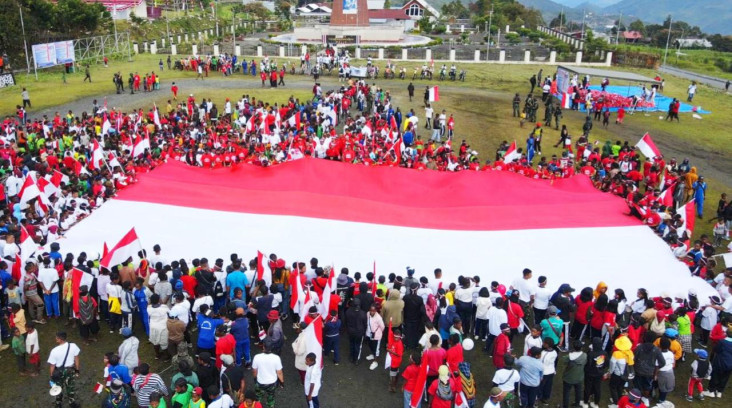The status of Papua as an official and legal part of the Republic of Indonesia (NKRI) has gone through a long process involving international diplomacy, military pressure, and recognition by the United Nations. Although it remains a topic of debate in some circles, Papua’s incorporation into Indonesia has been recognized de facto and de jure by the international community for over five decades.
The integration began following Indonesia’s Proclamation of Independence on August 17, 1945. The newly established Republic claimed all former Dutch East Indies territories, including Papua. However, the Dutch refused to relinquish control over Papua, citing ethnic and cultural differences, and attempted to create a separate Papuan state.
Tensions escalated in 1961 when President Soekarno launched Operation Trikora, a military and diplomatic campaign to reclaim Papua. This pressure led to the signing of the New York Agreement on August 15, 1962, brokered by the United States.
Under this agreement, the Netherlands handed Papua over to the United Nations Temporary Executive Authority (UNTEA), which then transferred control to Indonesia on May 1, 1963. The agreement also required Indonesia to conduct an Act of Free Choice (Pepera) in 1969.
Held between July and August 1969, the Pepera involved 1,026 local leaders from eight Papuan regions. All representatives unanimously chose to remain with Indonesia. Although the process received criticism for not using a one-person-one-vote system, it was conducted through local representative deliberation in line with Papuan cultural customs. The UN General Assembly later endorsed the result via Resolution 2504, passed on November 19, 1969.
“Papua’s integration is final. International law, through the UN resolution, has affirmed Papua as a legitimate part of Indonesia,” said Professor Dr. Hikmahanto Juwana, a prominent international law expert from the University of Indonesia.
Former senior diplomat Dr. Hasjim Djalal also confirmed the legitimacy of Papua’s status: “Once the UN has accepted the result and no country disputes it, the international recognition is legally valid.”
Since then, Papua has been under Indonesia’s control both de facto (in practice) and de jure (legally). Indonesia formalized the region as a province through Law No. 12 of 1969, and over time, Papua has been administratively divided into several provinces to improve local governance and development.
While the legal status is settled, challenges remain—particularly ensuring equal development, justice, and peace for the people of Papua within the framework of national unity.









